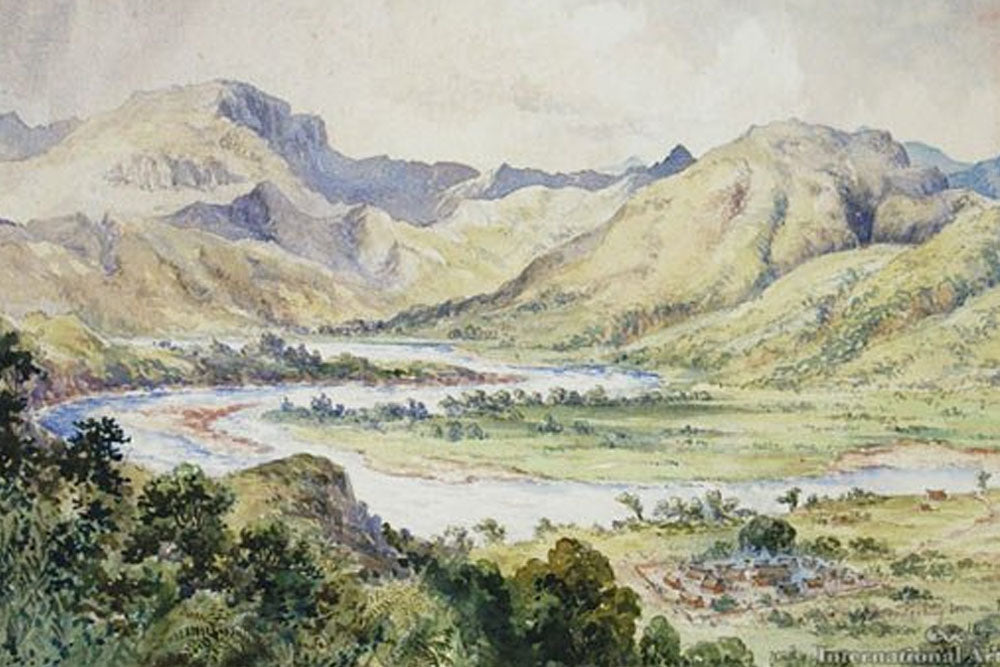
At Bula Kava House, we celebrate more than just our love of kava. We appreciate and respect kava's important role in the traditions and cultures of those places on Earth where kava is considered more than just a beverage but a part of life.
As we have recently covered in our continuing series on kava myths of the South Pacific, kava has often symbolized a bridge that connects the past with the present.
In the Tongan legend of kava, Fevanga sacrificed his daughter Kava kilia mai Faa'imata to honor his king when the man could not produce enough food to satisfy the monarch's hunger. Touched by the man's sacrifice, the king proclaimed that Kava's name would forever be immortalized and never forgotten. When a mysterious new plant sprouted from the girl's grave, it was named kava in her honor.
In the Vanuatu myth surrounding the origin of kava, a young man agonizes over the death of his sister, sitting by her graveside despondent each day for a year. One day, a new plant started to grow from his sister's grave, and when the man saw a mouse die after eating the plant, he decided to end his own life to join his sister. However, much to the man's surprise, the plant did not end his life. Instead, it helped to ease his suffering and provided a means of escaping his guilt and sadness over the loss of his beloved sister.
In both of these myths, kava represents a means of remembering the past and the ancestors that have come and gone before us. While the Tongan legend exalts kava as a means of honoring the Tongan king, the Vanuatu myth chooses to highlight the healing properties inherent in kava. But in both stories, kava grows from the very bodies of those who have passed. Kava connects us with those ancestors, working to maintain and carry on the wisdom and valued traditions inherent in these cultures.
The kava myth, however, isn't universal throughout the South Pacific. In Fiji, the origin of kava has little to do with remaining connected to our ancestors but rather to the land itself.
The Origin of Kava in Fiji
Before we explore the origin myth of kava from Fiji, we need to first examine how Fijian culture differs from Tonga and Vanuatu.
The mythology of Fiji primarily revolves around a massive pantheon of nature spirits, many of which play a role in passing down wisdom to humanity or serving as a benevolent protector. While Tongan and Vanuatu culture has their own gods, they tend to take on a more human form rather than as animal spirits.
This difference already highlights a significant variation in the mythology of these countries. When humanity remains the focus, the myth tends to focus on certain cultural traditions. When animal spirits take focus, myths become far more about the land itself, which we will see shortly.
 In Fijian culture, almost every natural phenomenon and animal has its own unique deity. One of the most prominent and essential is the snake god Degei.
In Fijian culture, almost every natural phenomenon and animal has its own unique deity. One of the most prominent and essential is the snake god Degei.
At the beginning of creation, Degei lived alone on an island of Fiji with only his friend, a hawk named Turukawa, as company. One day, while visiting Turukawa, Degei came upon the hawk's nest only to find it abandoned save for two eggs that lay in the nest.
Unable to find Turukawa, Degei decided to take the eggs home and care for them. Several weeks later, the eggs hatched, bringing into the world two tiny humans. Degei took on the responsibility of raising the humans by teaching them how to grow crops and eat food to nourish the body. Degi also told the humans stories that explained how the world worked so they might better understand the balance of all things in nature.
In Fijian legends, these two humans and their children were the ancestors of all Fijians to come. Once the humans became capable of caring for themselves, Degei brought the couple to the island of Viseisei. The first Fijian settlement is believed to have started in this place.
As part of humanity's stewardship, Degei imparted two essential gifts to the human settlement, vuga - a type of hardwood tree - and kava. Legend tells that Degei gave vuga and kava to humanity so we might gain wisdom and remain in touch with the gods by using these plants.
Today, legend tells that kava grows wherever the spirit of the first Fijian people resides.
Contrasting the Mythos
As we can see, the origin of kava in Fiji begins far differently than in either Vanuatu or Tonga. Rather than coming from the remnants of an ancestor, kava was gifted to the people of Fiji by the gods. Kava wasn't born out of sacrifice; it was given as a gift so that the people of kava would never lose touch with their native land.
While the underlying mythos in this origin is different from the two we explored before, similarities still exist.
Degei gave kava to humanity as a means of maintaining a connection. Additionally, with the legend stating that kava grows wherever the original descendants of Fiji once roamed, even this kava myth still connects to the ancestors of old.
We hope you enjoyed this series on the kava origins of the South Pacific. Of these three kava myths, which one resonates the most with you? Do you feel the connection between the past and the present when you drink kava? Let us know in the comments below.
Snakes on an Earthly Plane: Examining Fijian Kava Myth
